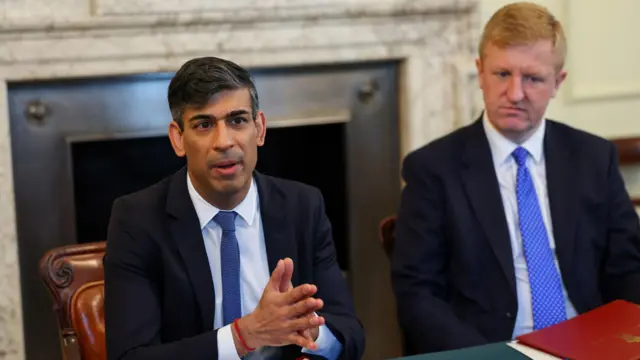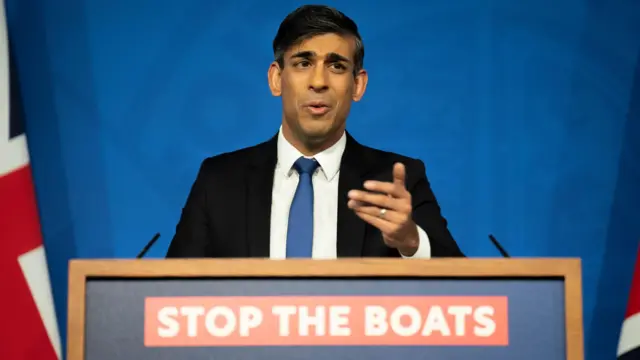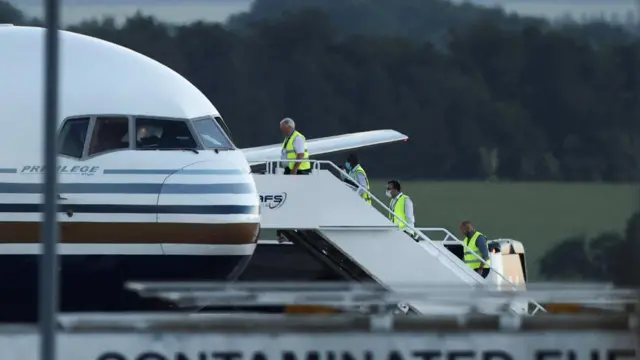'No more prevarication or delay' - Sunak on Rwanda billpublished at 10:26 BST 22 April 2024
 Image source, PA Media
Image source, PA MediaRishi Sunak, pictured speaking to his Cabinet this morning
We're expecting Sunak to give a statement from Downing Street shortly on the Rwanda bill, before it is voted on in the Commons later today.
"No more prevarication, no more delay," was his rallying cry at a meeting of the government's illegal migration operations committee this morning.
The PM said the bill sends a "clear message" that illegal migrants will not be able to stay in the UK.
He said Rwanda is a "safe country", adding that his "landmark legislation" comes after "months and months of hard work and planning".
As a reminder, you can watch the press conference live by pressing the play button at the top of this page.



